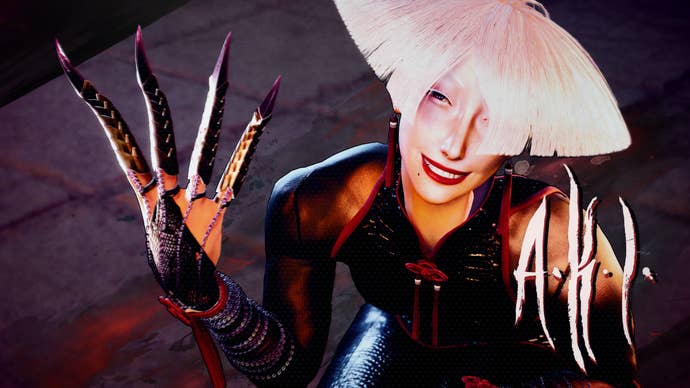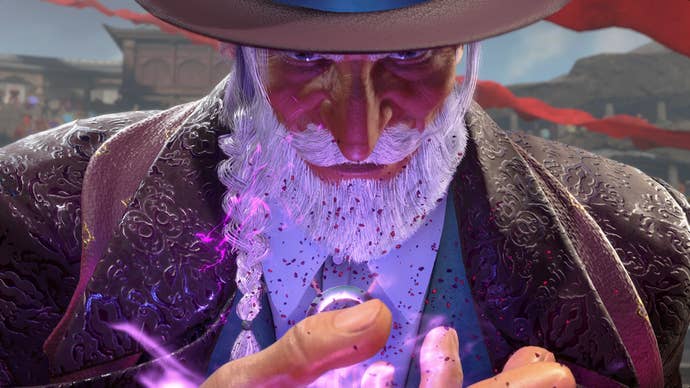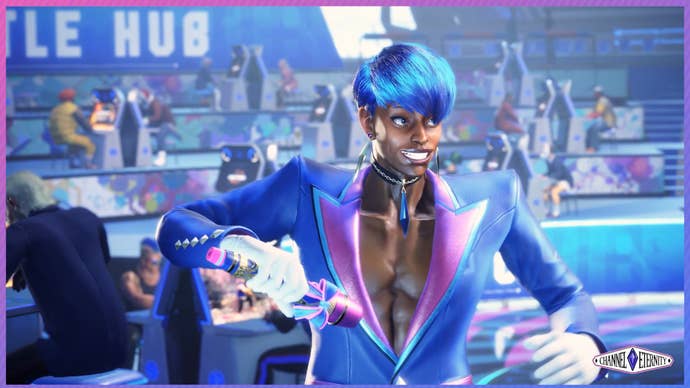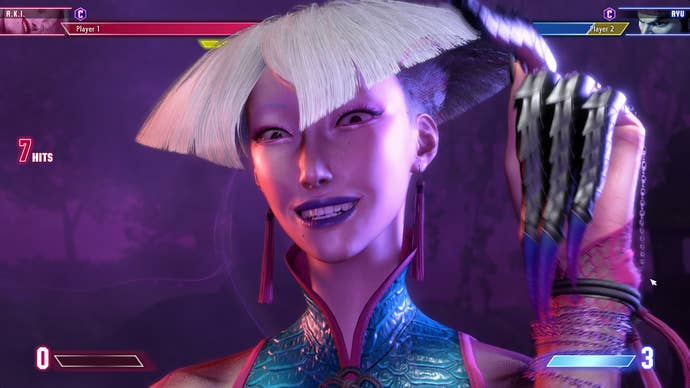Oh to be a fly on the wall when they pitchedthe Street Fighter 6 intro movie.
See, there are rules for fighting game cinematics.
These conventions are sacrosanct and cannot be broken.

Everything fromTekken, toGuilty Gear, toKing of Fighters, toStreet Fighter 5follows the same recipe.
With a neon graffiti aesthetic?
And in lieu of a social message, let’s get really existential about the meaning of strength!

Reader, I do not know how this got past upper management.
I cannot imagine how they sold it to shareholders.
I don’t understand why one of the biggest franchises decided to fiddle with the formula.

But it’s a breath of fresh air and poses that crucial question: What isstrength?
This might seem trivial, but in the context of fighting games, it almost makes sense.
These games are notoriously difficult.

The SF6 cinematic reaches the only obvious conclusion.
‘We’re all a bunch of fools’.
I’m a bigger fool than most.

So when I bought Street Fighter 6, I knew it was a mistake.
Except, this time, miraculously, it clicked.
But it’s clear that Capcom wants to represent a broad range of body-types, personalities, and identities.

Marisa, the Roman gladiator, has the physique of a titan.
Silver-haired JP, the main antagonist, conceals sinister secrets beneath a dapper demeanour.
Manon, the French judo ballerina, moves with the grace and poise of a swan.

And these character quirks not only add narrative texture, they often help youlearn the game.
Case in point is series protagonist Ryu, the first character I picked up.
It’s also reflected in his moveset, which forces you tolearn the fundamentals.

And all this got me from Iron to Gold rank.
But Ryu was encouraging me to playtoo fair!
When I scored a hit, I was backing off.

When I knocked people down, I was honourably letting themstand right back up again.
And this isnothow you play Street Fighter, so I made a change.
My next character was MI6 operative Cammy White.

Everything about her, from her clipped English accent to her triangular silhouette, is an arrow pointing forwards.
Cammy’s moves all shoot across the screen.
This teaches the art ofknockdown guessing games.

See, while they’re rising, they don’t have time to attack.
If they try - and theywilltry - you just hit them again.
Eventually they’ll block.
But, if they block you’re able to grab them.
And if they jump your grab, they’re vulnerable to attacks!
Cammy also taught me the ‘frame trap’.
And if they fall for it, youknock them down again!
Rinse and repeat until you bait out an unsafereversal, which you could punish even harder.
These tricks took me to Diamond rank.
But I was becoming over-reliant on unga-bunga forward movement.
Opponents were starting to suss me out.
So I made one last switch, this time to newcomer A.K.I.
is a master poisoner, hair turned white from chemical-exposure, half-mad from toxic fumes.
Finally, after200 hours, A.K.I.
pushed me through to ‘Master’, the highest rank.
And you know what I learned?
I’m still not that strong.
There are still people who can slap me around in straight sets.
I still get teabagged by angry Kens.
But I also learned it doesn’t matter, because I’m no longer here to win.
I just want to learnmore.
I want to learn Chun Lee, whose long-legged kicks and pokes will iron out my iffyneutral game.
I want to learn Dee Jay and bamboozle my opponents with feints andmixups.
I want to learn JP and zone people from across the screen using hardreadsand deviousconditioning.
And that’s what I love about Street Fighter 6’s philosophy.
Or a tricksy little A.K.I., labbing your fancy setups until they’re hard-coded in muscle memory.
Or a single-minded Cammy, analysing your weaknesses and overcoming them, like a straight arrow heading ever forwards.
So what is strength…?
It’s the wrong question.
Strength is a by-product; a symptom.
Street Fighter 6 teaches you something much better: How to be a fool for fighting games.